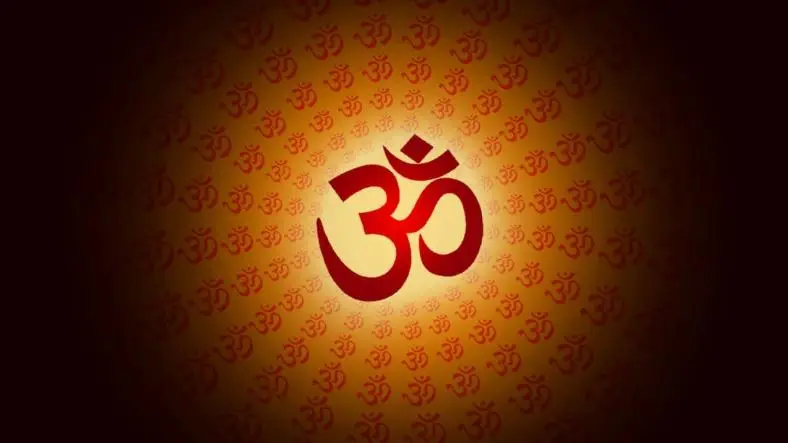The concept of dharma is central to Hindu philosophy and is rooted in the ancient texts called the Vedas. Dharma is a term that holds many meanings, ranging from the cosmic order of the universe to an individual's personal duties in life. It is a principle that guides people to live righteously, follow moral codes and maintain ethical behavior. Dharma also plays an essential role in shaping the way Hindus perform rituals and live their daily lives.
In this article, we will simplify the concept of dharma as outlined in the Vedas and explore its various aspects and importance in Hindu traditions.
Understanding Dharma in the Vedas
1. Cosmic Order and Rta
- In the Vedic texts, Rta is a concept that refers to the natural law or cosmic order that maintains the universe in balance.
- Dharma is closely linked to Rta, as it is believed that living in accordance with dharma helps maintain harmony in the world.
- Just as Rta ensures that the universe functions properly, dharma ensures that human actions and behavior remain just and fair, allowing society to function smoothly.
2. Social and Ritual Duties
- The Vedas emphasize performing rituals and sacrifices as an essential part of dharma.
- Through these rituals, individuals align themselves with the divine order and seek blessings from the gods.
- These acts also reflect a person’s commitment to living a life according to dharma.
- Additionally, dharma includes one’s social duties, such as fulfilling their role in society based on their position, age and responsibilities.
3. Ethical and Moral Conduct
- Dharma is not only about rituals and social roles but also about leading a life guided by ethical principles.
- It encourages virtues like truthfulness, non-violence and compassion.
- These values form the basis of moral living and are essential for personal growth.
- Every person has specific duties to perform based on their circumstances, such as their family, job and social status.
- Fulfilling these duties responsibly is considered part of living in accordance with dharma.
Key Aspects of Dharma in the Vedas
1. The Varna System (Social Classes)
- The Vedic texts describe a social structure called the Varna system, which divides people into four main groups: Brahmins (priests), Kshatriyas (warriors), Vaishyas (traders) and Shudras (workers).
- Each group has different duties that they must follow.
- The Brahmins, for instance, are responsible for studying and teaching sacred texts, while the Kshatriyas protect society and maintain order.
- Adhering to these duties ensures the smooth functioning of society.
2. Ashramas (Stages of Life)
- Dharma evolves throughout a person's life and the Ashramas or stages of life help define what is expected of them at different times.
- The four stages of life in the Vedic tradition are Brahmacharya (student), Grihastha (householder), Vanaprastha (hermit) and Sannyasa (renunciant).
- Each stage comes with its own set of responsibilities that reflect the personal and spiritual growth of an individual.
3. Rituals and Sacred Texts
- The Vedas place great importance on performing rituals and maintaining ritual purity as part of dharma.
- The correct performance of sacrifices, known as yajnas, is vital to upholding cosmic order.
- Through these rituals, individuals seek blessings from the gods and ensure the well-being of society.
The Evolution of Dharma Beyond the Vedas
1. Upanishads and Later Texts
- As Hinduism evolved, so did the concept of dharma.
- The Upanishads, which are later philosophical texts, delve deeper into the spiritual meaning of dharma, connecting it to self-realization and knowledge of the ultimate reality, known as Brahman.
- In the epics like the Mahabharata and Ramayana, dharma is presented through characters facing personal and ethical dilemmas, illustrating how complex the concept can be in real-life situations.
2. Contemporary Relevance
- Even today, the concept of dharma remains a vital part of Hindu philosophy.
- It helps guide modern Hindus in understanding their personal duties, ethical behavior and social responsibilities.
- Furthermore, dharma has influenced discussions on ethics, law and morality across different cultures and philosophies.
Conclusion
Dharma, as described in the Vedas, is a profound and all-encompassing concept that touches on cosmic order, social duties and personal ethics. Rooted in Vedic thought, dharma offers a framework for leading a righteous life and fulfilling one's role in the universe. Over time, the understanding of dharma has expanded, influencing Hinduism's spiritual and moral traditions. Today, it remains a guiding principle for individuals seeking balance, order and harmony in their lives, while also contributing to broader philosophical discussions around ethics and morality.
By exploring the Vedic concept of dharma, we gain insight into the foundational principles that continue to shape Hindu thought and influence modern interpretations of duty, law and ethics.









![Dell [Smartchoice] Core i3-1215U, 12th Gen (8GB RAM/512GB SSD/FHD/Window 11/MS Office' 21/15"(38 cm)/15 Month McAfee/Black/1.48kg Laptop Dell [Smartchoice] Core i3-1215U, 12th Gen (8GB RAM/512GB SSD/FHD/Window 11/MS Office' 21/15"(38 cm)/15 Month McAfee/Black/1.48kg Laptop](https://m.media-amazon.com/images/I/61QXAqq9OhL._SX679_.jpg)





